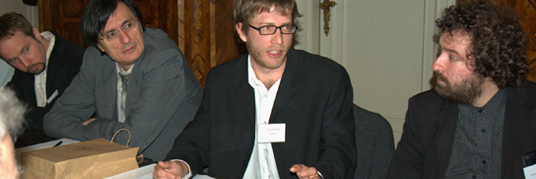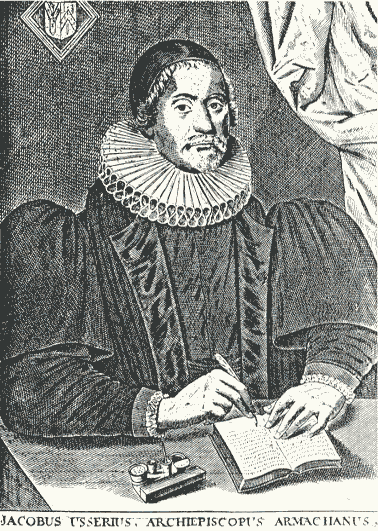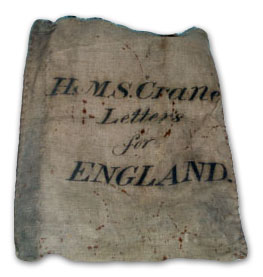* You are viewing Posts Tagged ‘Geography’
Updated to include confirmed speakers and link to full CFP

Papers are invited for a conference on ‘The Global Dimensions of European Knowledge, 1450-1700’, which will take place at Birkbeck, University of London on 24-5 June 2011. The conference will investigate the impact of European exploration and travel on the structures, contents and sources of authority of European knowledge c.1450-1700, seeking to explore connections between the making of knowledge and a broad range of intellectual, political, cultural, religious and mercantile encounters between Europe and the wider world. It aims to bring together scholars from different disciplines working on any aspect of European knowledge that included an extra-European dimension. Forms of knowledge under consideration include ethnology, natural history, botany, natural philosophy, geography, cartography, medicine and chronology. Confirmed speakers include Professor Felipe Fernández-Armesto (Notre Dame), Professor Pamela Smith (Columbia), Dr Joan-Pau Rubiés (London School of Economics), Professor Ricardo Padrón (Virginia), Professor Nicolás Wey-Gómez (Brown), Dr Michiel van Groesen (Amsterdam), and Professor Peter Burke (Cambridge). The deadline for proposals is 31 July 2010; for further details and submission instructions, see the full call for papers.
 Further to the CFP, registration is still open for the international conference Circulating Ideas in Seventeenth-Century Europe: Networks, Knowledge and Forms, which will take place at the Royal Society (London) on 8–10 July 2010. The conference will explore the dynamic intellectual economies brought into being by wars, revolution, and international exploration (with particular reference to the forms in which ideas circulated), and features plenary talks from Margaret Ezell, Richard Serjeantson, and Mark Greengrass and Howard Hotson (who will jointly present some of the aims and ambitions of Cultures of Knowledge). For the schedule, abstracts, and a registration form, please see the conference webpage.
Further to the CFP, registration is still open for the international conference Circulating Ideas in Seventeenth-Century Europe: Networks, Knowledge and Forms, which will take place at the Royal Society (London) on 8–10 July 2010. The conference will explore the dynamic intellectual economies brought into being by wars, revolution, and international exploration (with particular reference to the forms in which ideas circulated), and features plenary talks from Margaret Ezell, Richard Serjeantson, and Mark Greengrass and Howard Hotson (who will jointly present some of the aims and ambitions of Cultures of Knowledge). For the schedule, abstracts, and a registration form, please see the conference webpage.
Applications are invited for an international PhD programme The Traditions of the Mediterranean Humanism and Challenges of our Times: The Frontiers of Humanity. Co-funded by the European Union, the programme is organised by the Institute for Interdisciplinary Studies ‘Artes Liberales’ at the University of Warsaw, and offers forty-eight months of paid fellowships across over a dozen thematic strands, including 12-18 months in Austria, the Czech Republic, France, Great Britain, Greece, Hungary, Macedonia, Russia, Spain, or the USA (at a stipend of about 770 euros per month, increased to 1,150 euros when abroad). Applicants to the strand Universal Reformation: Intellectual Networks in Early Modern Central Europe will explore major intellectual movements in early modern central Europe in the post-Reformation period, including correspondence networks and the transfer of knowledge due to the displacement of scholars and shifting local intellectual and religious traditions. As well as stays at the Centre for Early Modern Studies at the University of Aberdeen and the Institute of Philosophy at the Czech Academy of Sciences, this will comprise a six-month stay at the University of Oxford, where, via the Modern European History Research Centre, candidates will benefit from synergies with Cultures of Knowledge and be co-supervised by Project Director Professor Howard Hotson. The deadline for applications is 17 July 2010. For full details, please see the programme website.

Workshop participants in discussion. © SOM
The third and final workshop in our extremely successful east-central European series took place last month in Budapest on the theme of ‘Encyclopaedism, Pansophia, and Universal Communication, 1560-1670′. The workshop was generously hosted and co-sponsored by Central European University and the Semmelweis Museum, Library, and Archives of the History of Medicine (with additional financial support from the Institute of Literary Scholarship of the Hungarian Academy of Sciences and the Institute for Literary Studies and Lingusitics of the University of Miskolc), and was organised by Márton Szentpéteri, Gábor Kecskeméti, Benedek Varga, and Márton Zászkaliczky. It allowed eighteen emerging and established scholars to converge on the related seventeenth-century ideas of collecting all knowledge into a single coherent system and of teaching all things to all men, as well as the networks and communicative strategies by which these universalist philosophies were disseminated across the fragmented geographical and political canvas of east-central Europe. For full details of the workshop, including abstracts and photographs, please see the workshop webpage. Themes addressed in the course of the workshop series will be drawn together in the international conference Universal Reformation: Intellectual Networks in Central and Western Europe, 1560-1670 (St Anne’s College, University of Oxford, 21-23 September).

James Ussher, Archbishop of Armagh and Primate of All Ireland (1581-1656). Wikimedia Commons.
In the second installment of the Project’s seminar series on Thursday 6 May, Dr Elizabethanne Boran (The Edward Worth Library, Dublin, and formerly The Ussher Project) provided another capacity audience with a detailed paper entitled ‘“Live and speak unto the Church, when you are dead”: The Correspondence of James Ussher (1581-1656) and Samuel Ward (1572-1643)’. Focusing on the letters exchanged between the Irish primate and the Master of Sidney Sussex College Cambridge from 1625 – a corpus of around 45 extant documents – Boran used the correspondence to shed fascinating light on the religious preoccupations and perspectives of the two scholars (the letters frequently cover church history, doctrinal controversies, religious radicals, and Arminianism), as well as their unequal personal dynamics (Ussher, the younger but more senior of the two, frequently adopts a superior tone). The paper also used the Ussher/Ward case study as the basis for many suggestive insights into the structure and functioning of correspondence networks more generally, in particular regarding the ‘temporal flow’ of the seventeenth-century Republic of Letters (the rhythm of which was heavily influenced by the seasons and the weather), the complex relationship between the content of correspondence and the itineraries of the senders and receivers as well as their opportunities for verbal forms of contact (letters sent during 1626, when both men were in close physical proximity, are generally ‘staccato’), and the extent to which epistolary networks were mapped onto and relied upon adjacent professional, social, and economic modes of exchange (in particular mercantile and friendship networks, and practices of academic visiting). Seminars take place in the Faculty of History on George Street on Thursdays at 3pm. For future seminars in the series, please see here.
James Brown
February 06, 2010
Events
Tags: Geography, Spatial Theory
 An international, interdisciplinary conference on ‘From Space to Place: The Spatial Dimension in the History of Western Europe’ will take place at the German Historical Institute on 16-17 April 2010. Organised by the Centre for Research in History and Theory at Roehampton University, and featuring contributions from historians, geographers, anthropologists , archaeologists, and literary scholars, the conference will challenge the idea of place or space in history as an unreflected essentialist category linked to tradition and immutability, and will show how it was instead socially and culturally constructed, mediated, and contested. There will be broader reflections on historiography and spatial theory as well as case studies from a wide chronological span (including many from the medieval and early modern period). For programme and booking information see the conference website.
An international, interdisciplinary conference on ‘From Space to Place: The Spatial Dimension in the History of Western Europe’ will take place at the German Historical Institute on 16-17 April 2010. Organised by the Centre for Research in History and Theory at Roehampton University, and featuring contributions from historians, geographers, anthropologists , archaeologists, and literary scholars, the conference will challenge the idea of place or space in history as an unreflected essentialist category linked to tradition and immutability, and will show how it was instead socially and culturally constructed, mediated, and contested. There will be broader reflections on historiography and spatial theory as well as case studies from a wide chronological span (including many from the medieval and early modern period). For programme and booking information see the conference website.


 Further to the
Further to the 

 An international, interdisciplinary conference on ‘From Space to Place: The Spatial Dimension in the History of Western Europe’ will take place at the
An international, interdisciplinary conference on ‘From Space to Place: The Spatial Dimension in the History of Western Europe’ will take place at the 
 Join
Join 